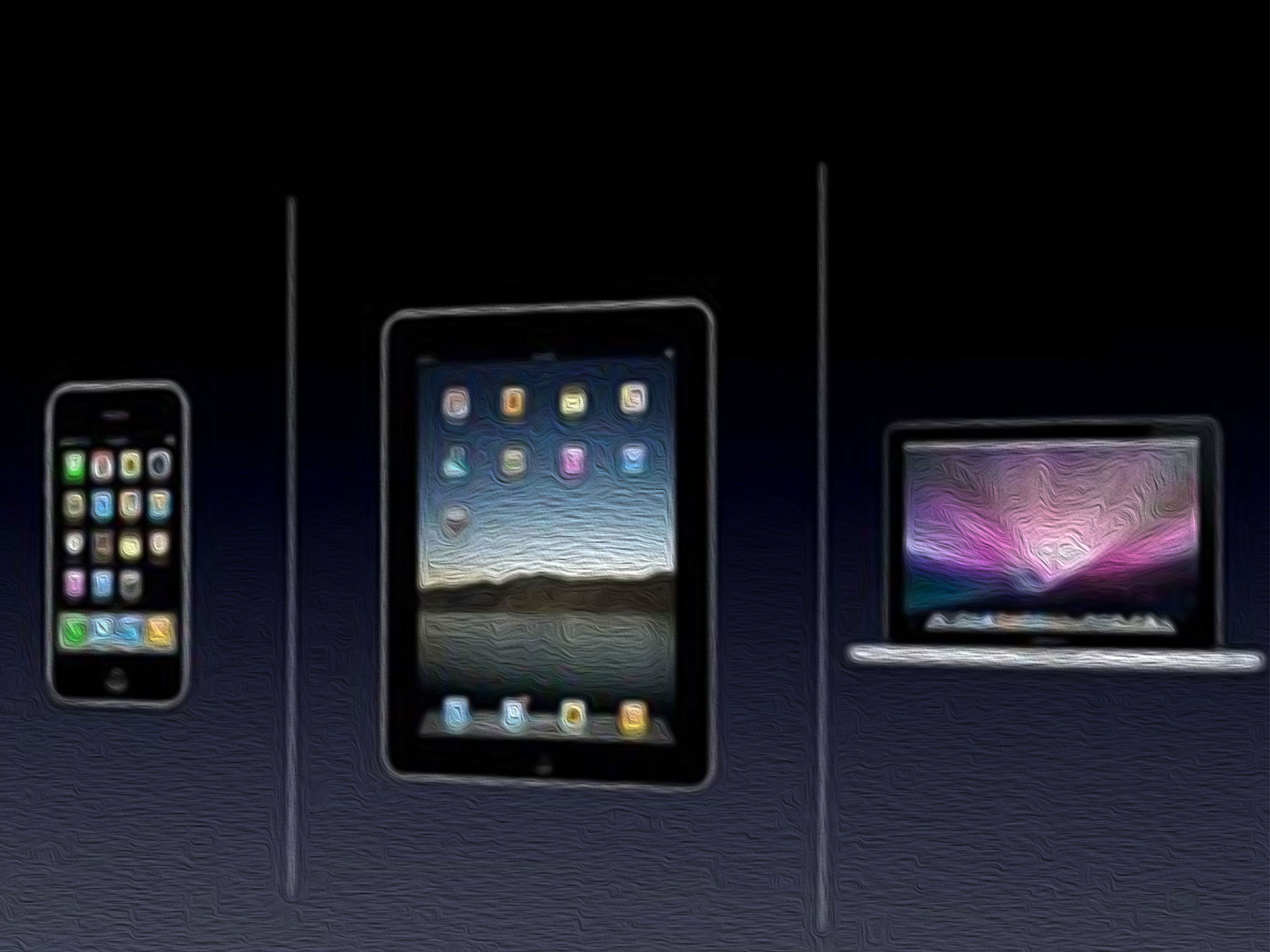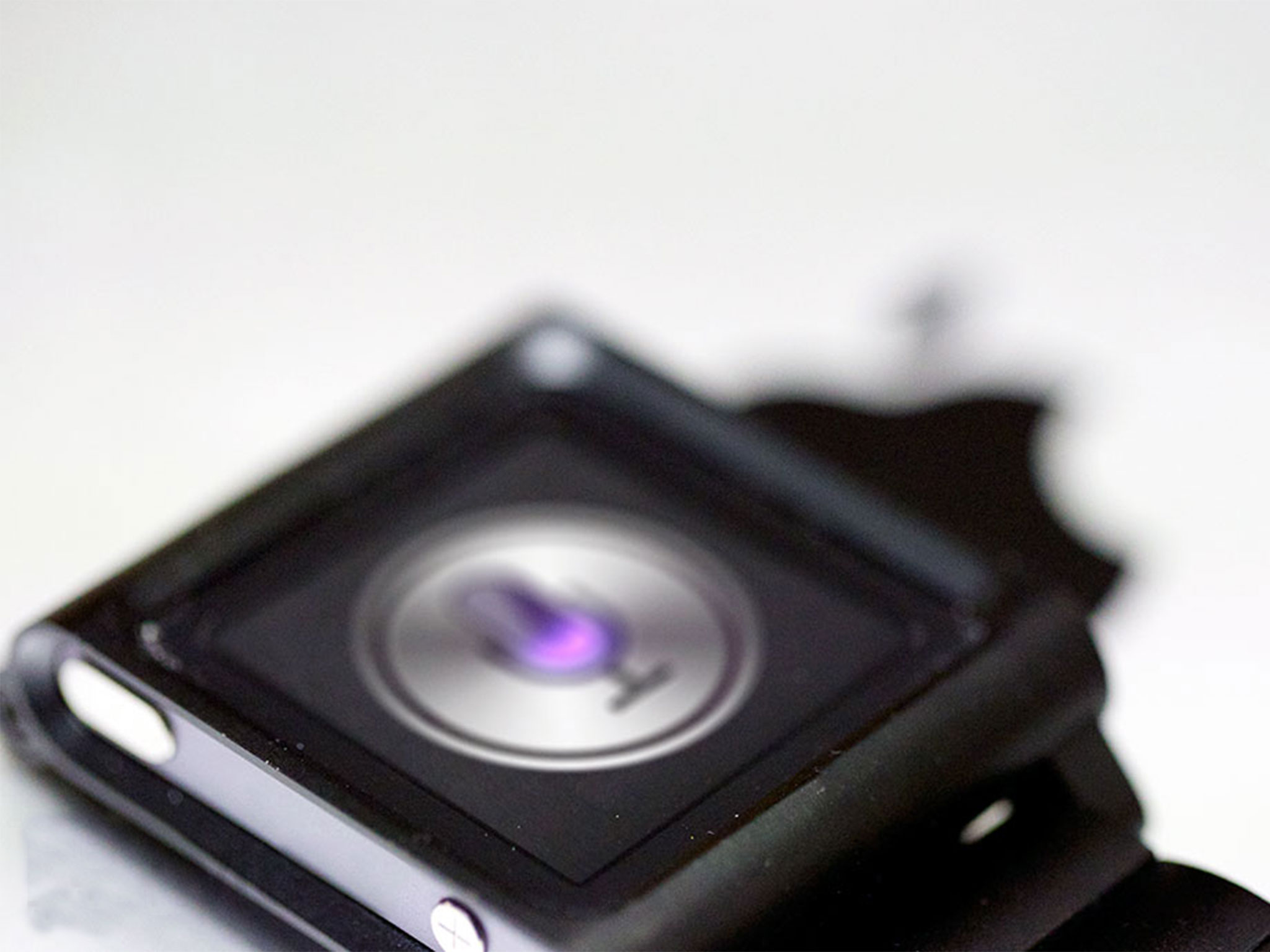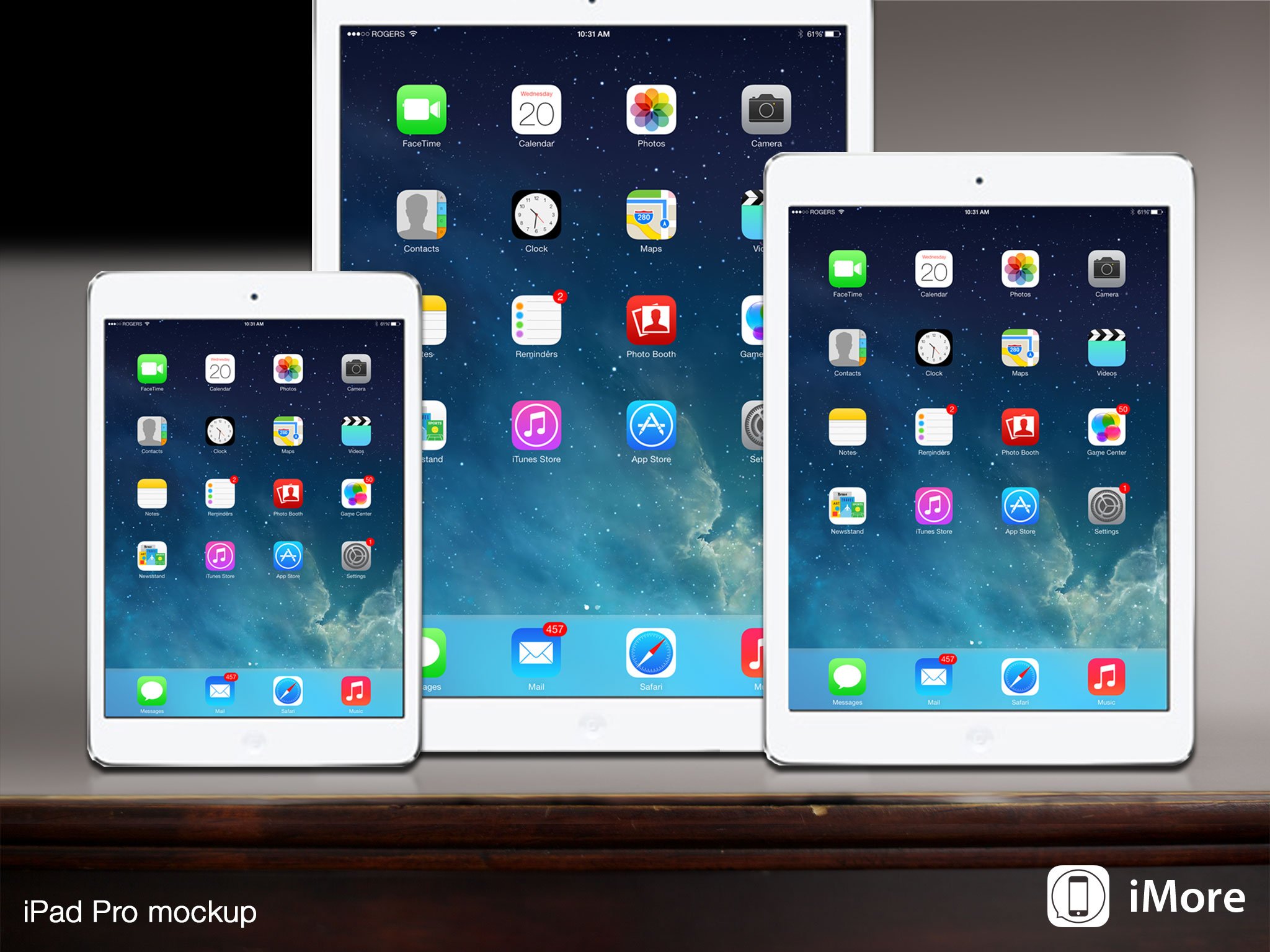From iWatch to iPad Pro: How Apple could fill the mobile device spectrum

Steve Jobs introduced the original iPad in 2010 by making the case that, in order for a new product category to exist between the smartphone and the laptop it had to be significantly better at certain important things than a smartphone or a laptop. A decade of Tablet PC ruins smote across the market space had made that clear enough. The iPad, case made, went on to achieve phenomenal success. Now, in 2014, the mobile market has grown and various companies are attempting the segment it with even more product categories, including:
- Wearables, including smartwatches, below smartphones.
- Phablets between phones and tablets, and,
- Hybrid... laplets? between tablets and laptops.
Could Apple make a play in any of these additional categories? Could they help define them as successfully as they have the phone, tablet, and laptop? Is there any reason they'd even want to?
Wearables and the iWatch

Apple may one day fill the first category with an iWatch, iBand, or some other form of wearable. There are already fitness bands on the market from Nike, FitBit, Jawbone, and others, as well as watches from Pebble, Samsung, and soon, Motorola and LG. It's not yet a maturing product category, the kind Apple typically enters right before mainstream adoption explodes, but it's a complementary one, much like the Apple TV.
With a wearable, Apple could provide several features below the iPhone:
- Base functionality for those for whom even an iPhone is too much computer, all or part of the time.
- Deployed sensor array that is better positioned to accumulate data on the body than the iPhone is in the pocket, purse, or left away.
- Receiver and display platform for data that's more accessible on the body than the iPhone is in the pocket, purse, or left away.
The biggest difference between this and any other category on the mobile device spectrum is that a wearable can not yet be a primary computing platform. It can't replace a phone or tablet or traditional computer for even a small subset of primary computing tasks the way the iPhone and iPad could and can. One day, perhaps, when interface innovations allow them to provide function beyond their screen size and technology enables radios to work in so small a casing, but likely not for a while.
For now a wearable, like an Apple TV, is likely a companion product that doesn't replace but rather enhances the value of Apple's ecosystem.
I elaborated more on this the other day in iWatch: Five problems I'd like to have solved by an Apple wearable.
iMore offers spot-on advice and guidance from our team of experts, with decades of Apple device experience to lean on. Learn more with iMore!
Similar to how the iPod shuffle and iPod nano — both wearable in some of their incarnations — sat below the iPod touch and iPod classic and provided a subset of functionality in exchange for even greater portability, so too could an iWatch for iOS.
Phablets and an even bigger iPhone

Samsung made the phablet — half phone, half tablet, or would you prefer tablone? — category into a thing with the introduction of the first Galaxy Note. Since then many other Android manufacturers have followed, and Nokia and Windows Phone have gotten into the game as well. A 5.5- to 6-inch iPhone 6 variant — or a device that size marketed as an iPad or with a completely different name — could fill that gap.
I call it a gap because, obviously, Apple isn't hurting when it comes to current iPhone sales or market share in the premium phone market, which has risen from 65% to 85% by some estimates. However, it's equally apparent that further growth in that market will require some diversification. With a phablet between an iPhone and iPad, Apple could:
- Appeal to those who can only afford or are only willing to carry a phone as their primary computing device but need as much functionality (enabled by size) as possible.
- Create the potential for a higher class of software made possible by the larger scale (see iPad).
- Grow their addressable market while assaulting the last uncontested segment of their competitors in the premium space.
Yes, if Apple changes the resolution of the iPhone screen, even if they go to a standard like 1920x1080p, it will cause pain for developers but so did going Retina, so did going 16:9, and temporary pain in the present for better future products is never something Apple's shied away from.
I went over how a larger iPhones will solve problems for Apple back in January. Similar to how the iPad has two screen sizes, the MacBook Air and MacBook Pro have two screen sizes, and the iMac has two screen sizes, Apple's sweet spot for the iPhone should inevitably come to rest on two screen sizes, and one of those might well be the phablet.
Hybrid tablets/laptops and the iPad Pro

Traditional, convertible PCs aside, the idea of something almost as light as a tablet but with a detachable keyboard that makes it as productive as a laptop is something Microsoft has pursued enthusiastically with their Surface line. However, they chose to compromise instead of focus, and none of them have achieved the mainstream success the iPad has. Maybe the category is too niche or maybe, like Tablet PC, no one has yet made the right case.
The existing iPad is already being used with a variety of detachable third-party keyboards that make it, in essence, a convertible. However, the iPads software is geared towards modern, mainstream, multitouch computing and not traditional computing in any way, not even half-way. With an iPad Pro, Apple could:
- Provide a large screen size for those for whom productivity is much more important than portability.
- Use the additional space to provide additional features like digitizers and higher density cameras.
- Explore next-generation interface concepts that enhance functionality without complicating usability.
Making a higher resolution iPad would create similar pain for developers, of course.
I explored several ways Apple could make an iPad Pro truly professional last month. I still think a larger iPhone makes more sense than a larger iPad in today's market, but that doesn't mean a larger iPad won't also make sense at some point as well.
The mobile spectrum
Just like the iPod eventually spread across multiple sizes, capabilities, and price points, so to could iOS. It's what happens when times passes and markets mature. It's how you get more people to buy more devices. Apple has so far cherry picked the prime targets in the mobile space and appealed to an incredibly wide swathe of their customer base. Eventually they may want or need to cherry pick just a few more to appeal to an even wider one.

Rene Ritchie is one of the most respected Apple analysts in the business, reaching a combined audience of over 40 million readers a month. His YouTube channel, Vector, has over 90 thousand subscribers and 14 million views and his podcasts, including Debug, have been downloaded over 20 million times. He also regularly co-hosts MacBreak Weekly for the TWiT network and co-hosted CES Live! and Talk Mobile. Based in Montreal, Rene is a former director of product marketing, web developer, and graphic designer. He's authored several books and appeared on numerous television and radio segments to discuss Apple and the technology industry. When not working, he likes to cook, grapple, and spend time with his friends and family.
